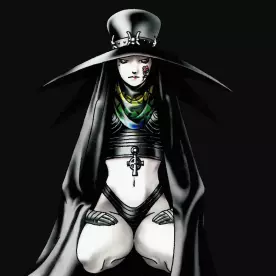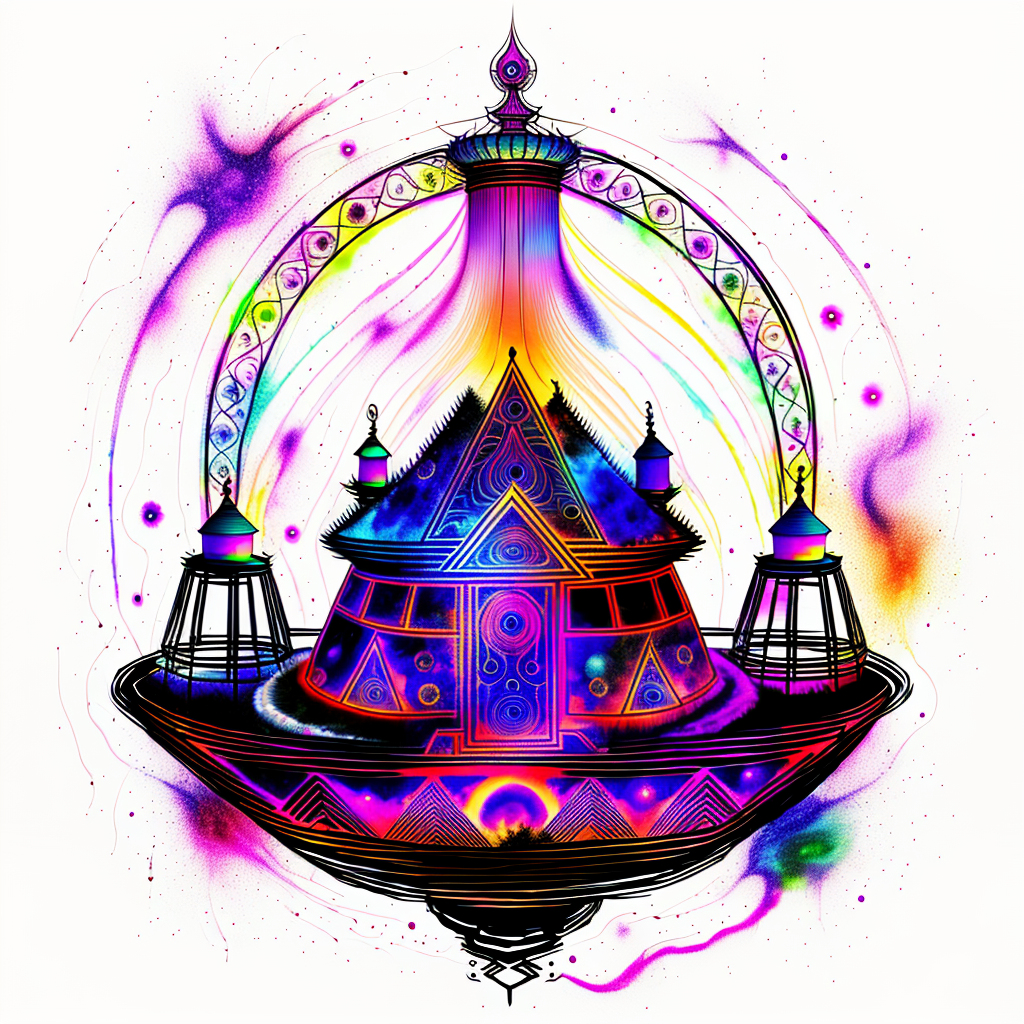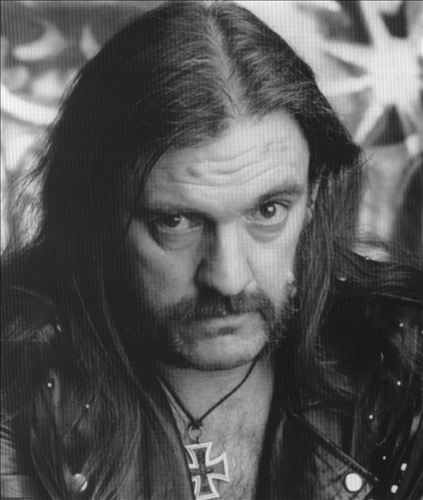Basically the title. In the US I’ve heard the fables of King Arthur and Robin Hood constantly. What are some other fabled heroes from antiquity that are less well known? Something from a non-Western culture.
There is Ngatetpya the great cat burglar of Myanmar. He was an actual person from 15th century or something but the later myth describe him as having as having super natural powers granted by enchanted tattoos on his legs. Like neighbouring country of Thailand, the tradition of enchanted tattoos were quite big in ancient Myanmar. You were not considered a man until you have thighs full of tattoos. Anyway, he could jump really high by slapping on his thighs, steal from rich people using his jumping powers and gave back to the poor. When he was finally caught, the king asked him to choose the weapon with which he was to be executed. The burglar blatantly said that he chose the queen consort. The gall of this guy impressed the king so much that he let him serve in his army. History described him as a successful scout/assasin in the king’s army.
There is the Nibelungen saga, a Germanic folk tale. It is too complex to give a short summary. Part of it is the heroic story of Siegfried, the dragon slayer.
It is western and well known in Germany, but judging by the lack of English sources, not very well known elsewhere. For more, I recommend reading the German Wikipedia entry (with translation)
Don’t know why, but this title just made me realize that King Arthur and Robin Hood are both brands of flour.
Not entirely dissimilar from Lancelot in Arthurian legend is Genji from The Tale of Genji (11th century Japan). Genji was also the male ideal: attractive, charismatic, talented. And, of course, sleeping around and getting in trouble for it. The key difference is Lancelot had valor on the battlefield, whereas Genji did his battles in court politics.
Not sure if you’d consider New World culture to be “Western”, but one that might fall in line with the pseudohistorical vibes of the two you mentioned would be Deganawida, an ancient diplomat from the 1100’s who came to five warring tribes and settled disputes, causing it to flourish into a democracy during a time when democracies weren’t an ongoing thing. His adventures are filled with what many might call performing miracles as well as moments of philosophy, profound symbolism, and even the earliest example of actual women’s rights.
Alibaba in some ways.
Nasreddin Hoca is the most popular Turkish folk hero
Anansi the Spider is a great trickster folklore character from the Akan in Ghana. I loved these stories as a kid and had a great book on tape.
Can’t go wrong with this list:
Analysis the Spider is a great trickster folklore character from the Akan in Ghana. I loved these stories as a kid and had a great book on tape.
It looks like autocorrect attacked KinNectar. In case anyone wants to read further, the spider’s name is Anansi.
Alibaba in some ways.
My understanding of Alibaba (and the 1001 Arabian Nights) is that they’re closer to Arabic “Duck Tales”. Fantastical stories more designed to woo children with crazy powers and nearly illogical plot structures. However, 1001 Arabian Nights became absurdly popular in Europe, far more popular than well-respected Arabic Heroes. (Much like how Duck Tales is a children’s story in American culture, but way more popular in Europe for some reason). Or for the American equivalent: us importing young-adult shows from Japan (lots of anime) and the American adults consuming it.
For someone “like King Arthur”, an adventuring Hero that’s well respected in the culture that they’re from (ex: English respect King Arthur and see him as high-culture), Arabic Heroes are closer to Sinbad the Sailor instead, rather than Alibaba, Aladdin, or Scheherazade.
Unfortunately, if an Arabic tale came to Europe in the 1500s to 1800s, it would be called “Arabic Nights”, because the original 1001 Arabian Nights was just so popular, every translator in Europe would basically add it as one of Scheherazade’s sub-stories. So its difficult from a Western / English-speaking lens to see what is, or isn’t, respected high-culture stories.
I’m looking through Wikipedia and have come across Antarah ibn Shaddad, a Guardian of the Nativity (Yes, “that” Nativity, Jesus’s birthplace). Such a hero sounds far more similar to King Arthur as a heroic figure to look up towards. (A lot of 1001 Arabian Nights are filled with rather disgusting and backstabby characters and aren’t really “Heroes”).
Meng Hao, I Shall Seal the Heavens.
I got nothin’ but this tangent: J.R.R. Tolkien did his world building and the novels they’re set in because he was jelly of the rich mythology of the neighboring northern European countries, and wanted England to have its own. I guess King Arthur and Robin Hood wasn’t good enough for him.
He’s not missing out by that much to be honest. The richer stories are more complex than anything, anyone can make something complex. It takes a somebody to craft something where every detail means something. Which Tolkien did.
He actually translated the Green Knight from its original old English so he did enjoy some mythology of England prior to his bestsellers.
Ned Kelly is getting very Robin Hood like here in Australia, although his actual story isn’t as heroic.
For an arthurian hero, perhaps Whitlam? Or Governor Macquarie, who arrived in Australia and removed the corruption in the system, and also changed our currency from alcohol to coinage (basically he took on the bastard cops and won). He also was able to answer the question of “you and whose army?” with “my army” and not be inaccurate. Naming half of Australia after himself was a bit rum though…
Totally ignoring ‘non-Western’ like most people here, but it’s all I know.
You could look into the Pre-Christian mythology of Ireland. The Túatha Dé Danann, Fomorians, the Fianna (including Fionn mac Cumhaill), and Cú Chulainn.
There are countless books available, including by WB Yeats, but the most ubiquitous is likely Early Irish Myths and Sagas from Penguin Classics.
We’ve got Trạng Quỳnh. Sort of a trickster folk-hero. Not exactly literal with the whole economic redistribution element, but in other ways somewhat similar to Robin Hood.
With regard to watery figures dispensing swords as a method of selecting government figures? We do have the legend where a golden turtle dispensed a magic sword to Lê Lợi at Hoàn Kiếm lake to help repel foreign invaders. It later had to be returned.
The latter story is often compared to the Arthurian legend. Both are fun stories to read about, although a lot of the tricks of Trạng Quỳnh don’t translate super well (and are somewhat NSFW, haha!).
William Tell is a Swiss folk hero. El Cid was a real person in Spain but has become a legendary character, as has Rob Roy McGregor. There’s also Beowulf from earlier times. Welsh mythology is pretty cool I’d check that out for some knightly stuff, like The Gododin.
Did someone mention ‘William Tell?’
Here is an alternative Piped link(s):
https://piped.video/ipr9iyc35Bc
Piped is a privacy-respecting open-source alternative frontend to YouTube.
I’m open-source; check me out at GitHub.
Every culture has legendary heroes. Ancient Babylon has the epic of Gilgamesh.
The Journey to the West is an option, although the moral of the story is usually all about how great Buddhism is (or how silly the monkey man is)
The 12th Doctor met Robin Hood, who he insisted was fake even after meeting him. It was genuinely a very fun episode.
The TV series Merlin had the late great John Hurt and was also a super fun time.
The 13th doctor met the king during the witch hunts, which apparently was a decent impersonation of him. It was called The Witchhunter iirc
You could probably just look up any major medieval theft for something VERY specific
I wish the doctor would visit other cultures, he is very rarely seen outside the Anglosphere. There’s so much missed potential in his time travelling.











